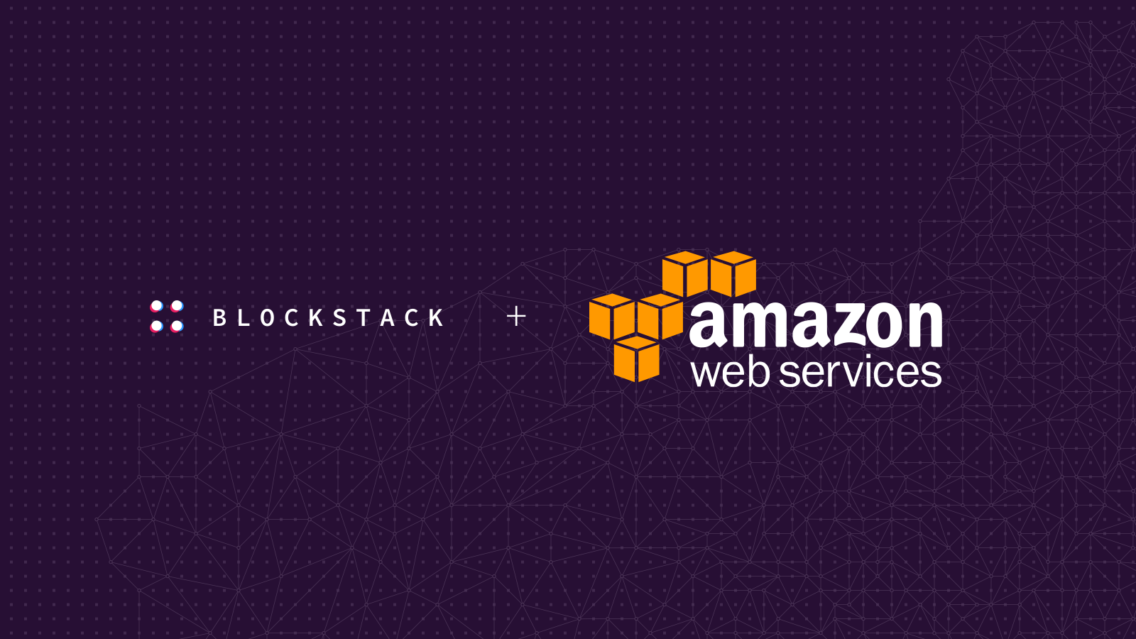We’re releasing a new fastsync feature with Blockstack Core v0.14.1. Blockstack nodes process the blockchain and provide secure access to critical internet services for users. Booting new Blockstack nodes takes time as new nodes need to process the blockchain from the beginning and independently verify their global view of the network. In an earlier release, we made this process 6x faster by using the Bitcoin backplane directly.
Fastsync
Today, we’re releasing a new fastsync method where new nodes can bootup within minutes instead of days. With fastsync, nodes quickly fetch the latest state, signed by current Blockstack developers, from a remote node and use it to sync up with the network. The new node becomes immediately useful and then runs a background process to verify the state independently. See the v0.14.1 release notes for details.
AWS Integration
We’re also excited to announce that Blockstack Core is now available on Amazon Web Services (AWS) Marketplace. This is the easiest way to deploy your own node from scratch. Developers will be delighted to hear that the Blockstack listing on AWS Marketplace already has the fastsync feature and there is no need to wait several days to boot a node from the genesis block.
We’d love you to try out the new fastsync feature.
- Step 1: Login to your AWS account or create one.
- Step 2: Deploy a new VM from the Blockstack listing with at least 20GB of space on the root volume.
- Step 3: SSH to your newly deployed node.
- Step 4: Use fastsync to get the latest state:
$ blockstack-server --debug fast_sync http://fastsync.blockstack.org/snapshots/latest.bsk 023fa2e30724998010764529bda23213061c8e758d7095e1883bed8006844daaec
- Step 5: Grab a coffee, your node will sync in 10 minutes! After syncing, start your node:
$ blockstack-server --debug start
$ tail -f ~/.blockstack-server/blockstack-server.log
Blockstack is enabling a truly decentralized internet where users don’t need to trust any intermediaries or remote services. We envision a world where a new decentralized internet replaces the current client/server model; users control their data, apps run client-side, and the open Blockstack network replaces server-side functionality. A Blockstack node running on a user’s laptop or VM is the only thing that users need to trust. Reducing the friction to deploying Blockstack nodes is an important step towards that mission.
